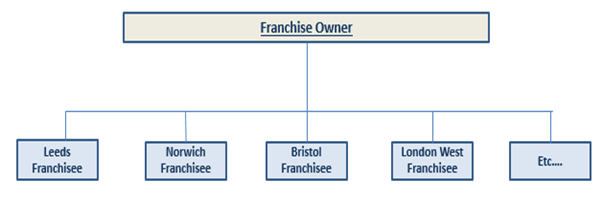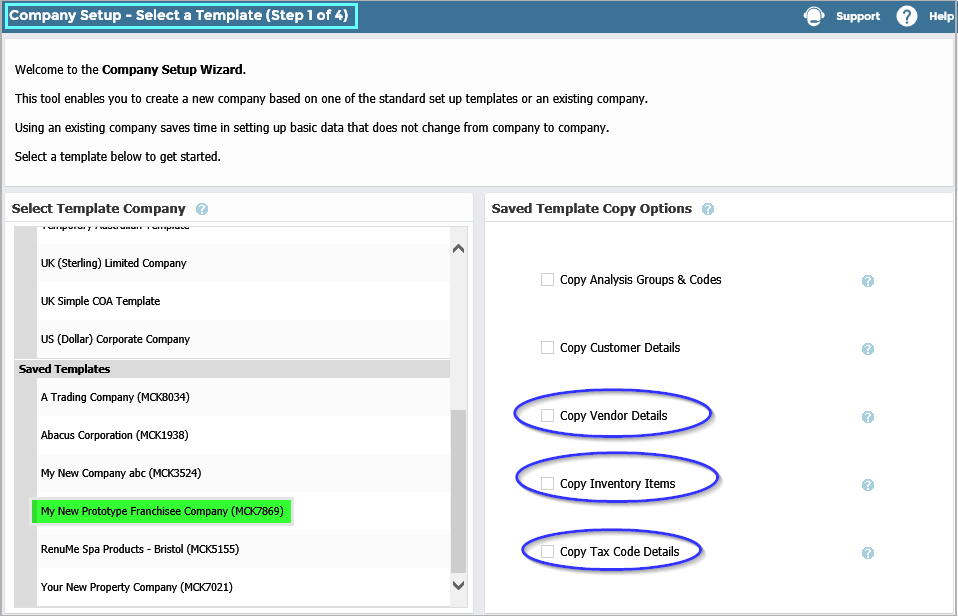
A franchisee must also make the following payments to the franchisor:
- A royalty fee for the use of the trademark
- Compensation for any training and advisory services
- A percentage of the franchise sales
- A marketing fee
- A disclosure fee to cover the franchisor’s legal and administrative costs of providing regulatory documentation
What are franchise royalties and how do they work?
Franchise royalties are usually collected by your franchisor on a monthly basis. Like marketing fees, these fees are based on a percentage of your revenue. But there’s one major difference; the percentages are higher. Franchise royalties range from 4% of your revenue all the way up to 12% or more.
Why do you have to pay franchise fees?
They’re the cost of entry. Paying the upfront franchise fee unlocks the door to the franchisors’ proprietary business systems and more. You get the complete setup. The franchise fee is literally a license to own and operate the franchise business. That’s why you must pay it.
What are the fees required in a franchise agreement?
The Federal Trade Commission (FTC) requires franchisors to list these fees in the Franchise Agreement. Initial franchise fee. This fee is paid to the franchisor for the right to use the franchisor’s trademark and sell its products and/or services. The franchisor has established an operational system and created brand awareness.
What are the one-time and ongoing costs of owning a franchise?
There are several one-time and ongoing payments related to owning a franchise. The Federal Trade Commission (FTC) requires franchisors to list these fees in the Franchise Agreement. Initial franchise fee. This fee is paid to the franchisor for the right to use the franchisor’s trademark and sell its products and/or services.
What are the 9 payments that franchisees should expect to pay?
What is the importance of finding out all the payments associated with owning a franchise?
What does a franchisor need to contribute to?
What do accountants need to review a franchisor's financial statements?
How long does it take to make a profit?
Do franchisors need to upgrade their equipment?
Do franchises have to list fees?
See 2 more
About this website

How much does a franchise cost?
Today’s franchise fees range from $20, 000-$50, 000, unless you’re considering purchasing a Master Franchise. (Master franchises involve purchasing a large geographical area and selling franchises in that area.)
What are the fees associated with owning a franchise?
There are other fees associated with owning and operating a franchise business. These include marketing fees and royalties. When you own a franchise, one of the things you’re hoping to capitalize on is the brand. Franchisors spend thousands of dollars every year to advertise their brand.
How much royalty do you pay for a food franchise?
Specifically, if you own a food franchise doing $1.5 million annually, and your franchisor charges a 5% royalty, you’d be paying $75, 000 in royalties to the franchisor every year. In contrast, if you own a business consulting franchise, the royalty percentage may be 10%, which does sound high.
Why do you pay upfront for franchise?
They’re the cost of entry. Paying the upfront franchise fee unlocks the door to the franchisors’ proprietary business systems and more. You get the complete setup. The franchise fee is literally a license to own and operate the franchise business. That’s why you must pay it.
How much royalties do franchises get?
Franchise royalties range from 4% of your revenue all the way up to 12% or more. The amount has to do with the type of franchise business.
Is franchising a franchise fee?
As shown above, franchise fees are a necessary part of franchising.
Is there a royalty fee for franchises?
Royalties. There’s another fee you’ll be paying as a franchisee. It’s a royalty. Franchise royalties are usually collected by your franchisor on a monthly basis. Like marketing fees, these fees are based on a percentage of your revenue. But there’s one major difference; the percentages are higher.
How Much Do Franchise Owners Make In Different Industries?
Now that we’ve looked at some stats showing the overall affluency of the franchising market, let’s zoom in on specific industries using the franchise business model.
How much do franchisees pay royalty?
Royalty fees – Franchisees typically pay between 4 and 12% of their total monthly revenue to the franchisor as a royalty. Marketing fees – Usually less than royalty fees, a percentage of a franchisee’s total monthly revenue is owed to the franchisor to fund the advertising done on behalf of the brand as a whole.
Is Buying a Franchise Risky?
Like any investment, buying a franchise is a risk. Considering the factors we mentioned above, many things can affect how much franchise salary you can expect to generate from your endeavor.
What factors should be considered when buying a franchise?
When deciding which franchise to buy, consider these factors: Your interests – To obtain a franchise, the initial investment will require considerable funds, efforts, and time. Due to the cost involved, make sure you invest in something that will hold your interest and a brand that you feel good about backing.
What is the business sense of a franchise?
Business sense – The success of a franchise depends mainly on the franchisee. A franchise owner with solid business skills and experience running a company is more likely to turn a profit than someone lacking those qualities.
What is overhead for a franchise?
Overhead – Like any business, owning a franchise comes with hefty overhead. The cost of running a franchise includes buying a stock of products, financing payroll, taxes, loan payments, etc. In many cases, franchisors also require franchisees to find their own real estate, which is a separate and significant cost.
What is territory franchise?
Territory – Typically, franchisees obtain the right to open and operate in a specific area or territory. Your income may be affected by the number of competitors in your area. If you’re the first unit of a particular franchise to open in a new territory, it may take a while to build up a regular client base.
What is the relationship between a franchisee and a franchisor?
The relationship between a franchisee and franchisor is inherently one of advisee and advisor. The franchisor provides continual guidance and support concerning general business strategies such as hiring and training staff, setting up shop, advertising its products or services, sourcing its supply, and so on.
Who pays a fee to a franchisor?
The franchisee pays a fee to the franchisor for the right to use the business's already-established success, trademarks, and proprietary knowledge.
Why do franchisors pay a startup fee?
To start, the franchisor assigns the franchisee an exclusive location where no other franchises within the same underlying business currently operate in order to prevent competition and help ensure success. In return for the franchisor's advisory role, use of intellectual property, and experience the franchisee generally pays a startup fee plus an ongoing percentage of gross revenues to the franchisor.
What is a franchisee?
A franchisee is a small business owner who operates a franchise. The franchisee has purchased the right to use an existing business's trademarks, associated brands, and other proprietary knowledge to market and sell the same brand, and uphold the same standards as the first business.
What are some examples of franchises?
Examples of well-known franchise business models include McDonald's (NYSE: MCD), Subway, United Parcel Service (NYSE: UPS), and H. & R. Block (NYSE: HRB).
How many McDonald's franchises are there in 2020?
At fiscal year-end 2020, there were 39,198 McDonald's restaurants in 119 countries around the world, 93.17% of which were franchised. So, the company has 36,521 franchisees. 2 The company’s long-term goal is for 95% of McDonald’s restaurants to be owned by franchisees.
Do franchisees get help?
Franchisees typically get a lot of help, as franchisors will tend to supervise their new franchisees closely.
What are the 9 payments that franchisees should expect to pay?
9 payments franchisees should expect to pay. 1. Initial franchise fee. This fee is paid to the franchisor for the right to use the franchisor’s trademark and sell its products and/or services. The franchisor has established an operational system and created brand awareness.
What is the importance of finding out all the payments associated with owning a franchise?
Finding out all the payments associated with owning a franchise —upfront and ongoing—is essential to knowing whether a specific franchise opportunity is right for you.
What does a franchisor need to contribute to?
Many franchisors require franchisees to contribute to an advertising fund, which pays for national and/or local ad campaigns, commercials, and other promotions. Other franchisors have co-op programs where the franchisor pays for a portion of the costs and the franchisee pays for the rest on a case-by-case basis.
What do accountants need to review a franchisor's financial statements?
2. Legal and accounting fees. Accountants need to review a franchisor’s financial statements, while attorneys need to review your franchise agreements to create a corporation, LLC, or other legal entity for your franchise, if necessary. 3. Property/casualty, liability, and other insurance.
How long does it take to make a profit?
Employee salaries. It can take two to three years to make a profit, so in the planning phases you will have to factor in how much you will need for employees’ salaries. 5. Building/outfitting costs. The costs of building/outfitting stores vary widely based on the type of business you are opening.
Do franchisors need to upgrade their equipment?
Some franchisors require planned equipment and software upgrades.
Do franchises have to list fees?
The Federal Trade Commission (FTC) requires franchisors to list these fees in the franchise agreement.

Initial Franchise Fee
- This fee is paid to the franchisor for the right to use the franchisor’s trademark and sell its products and/or services. The franchisor has established an operational system and created brand awareness. In return, franchisors request the franchise fee, which can range from a under $10,000 to upwards of $100,000.
Legal and Accounting Fees
- Accountants need to review a franchisor’s financial statements, while attorneys need to review your franchise agreements to create a corporation, LLC, or other legal entity for your franchise, if necessary.
Property/Casualty, Liability, and Other Insurance
- To get an idea of how much insurance will cost, send a copy of the franchisor’s insurance requirements, which are listed in the Franchise Disclosure Document (FDD), to your insurance brokers for rate quotes. If you have employees, you may have to offer life and disability insurance and other employee benefits, such as retirement plans.
Employee Salaries
- It can take two to three years to make a profit, so in the planning phases you will have to factor in how much you will need for employees’ salaries.
Building/Outfitting Costs
- The costs of building/outfitting stores vary widely based on the type of business you are opening. Obviously, if you have to build a store from the ground up, the costs will be significantly more. Most often you will only be outfitting an existing location to meet your franchisor’s specifications. You will need fixtures and equipment, furniture/seating, lighting, ventilation, décor, signage, and r…
Royalties
- Royalties are paid on a regular basis, usually monthly, to the franchisor by the franchisee. The fee constitutes anywhere from 4 to 8% of a franchisee’s total sales.
Advertising Fees
- Many franchisors require franchisees to contribute to an advertising fund, which pays for national and/or local ad campaigns, commercials, and other promotions. Other franchisors have co-op programs where the franchisor pays for a portion of the costs and the franchisee pays for the rest on a case-by-case basis.